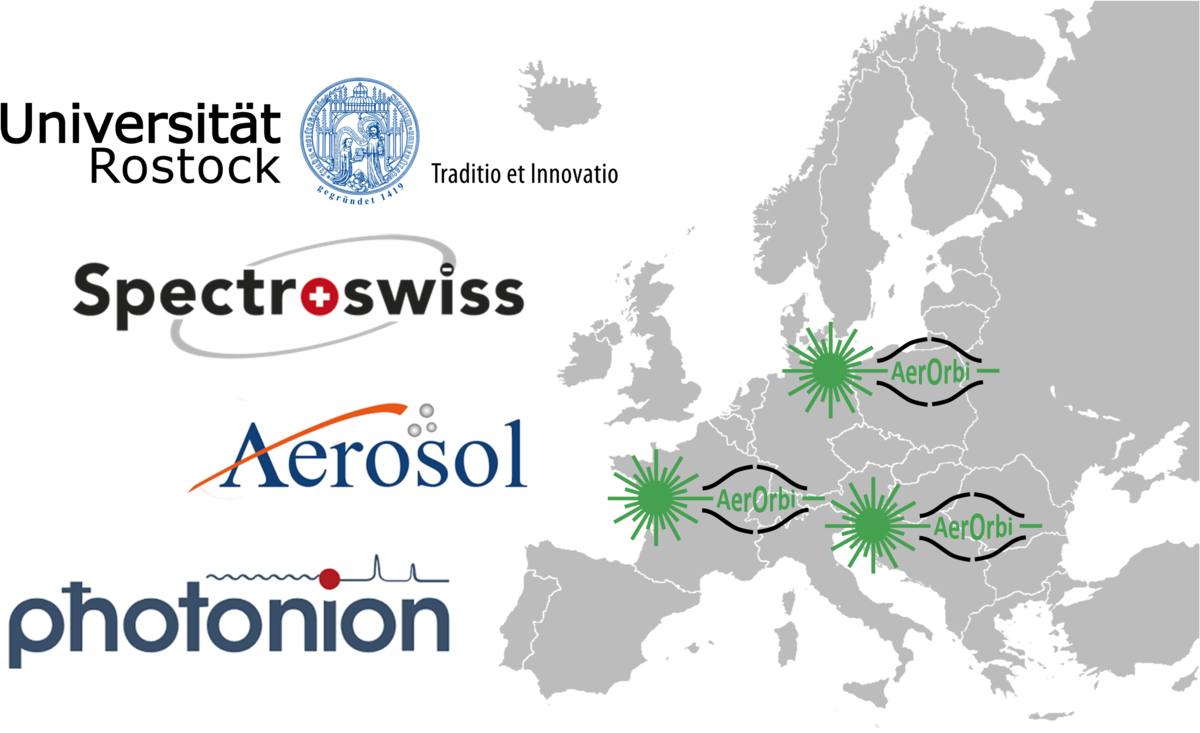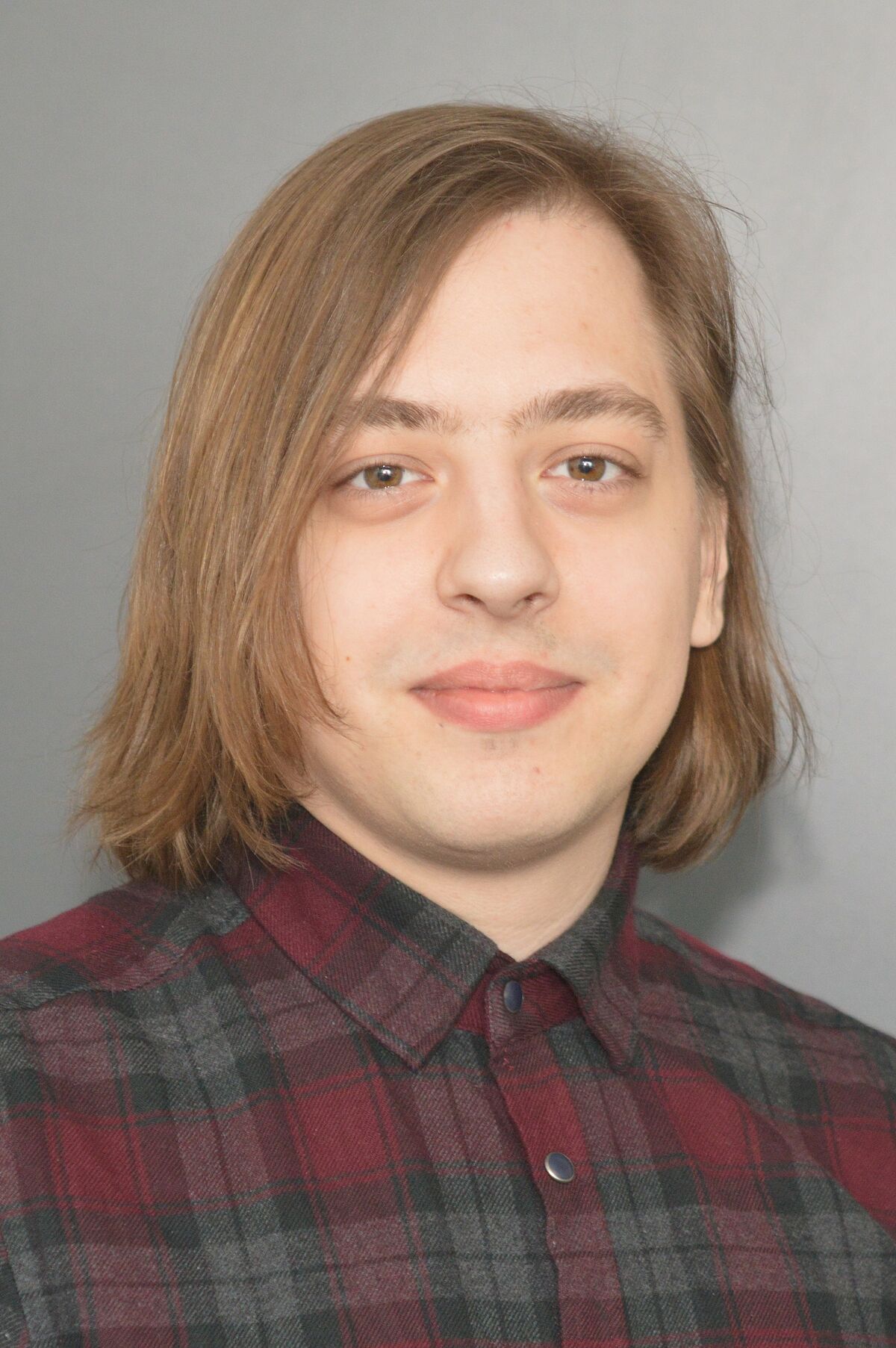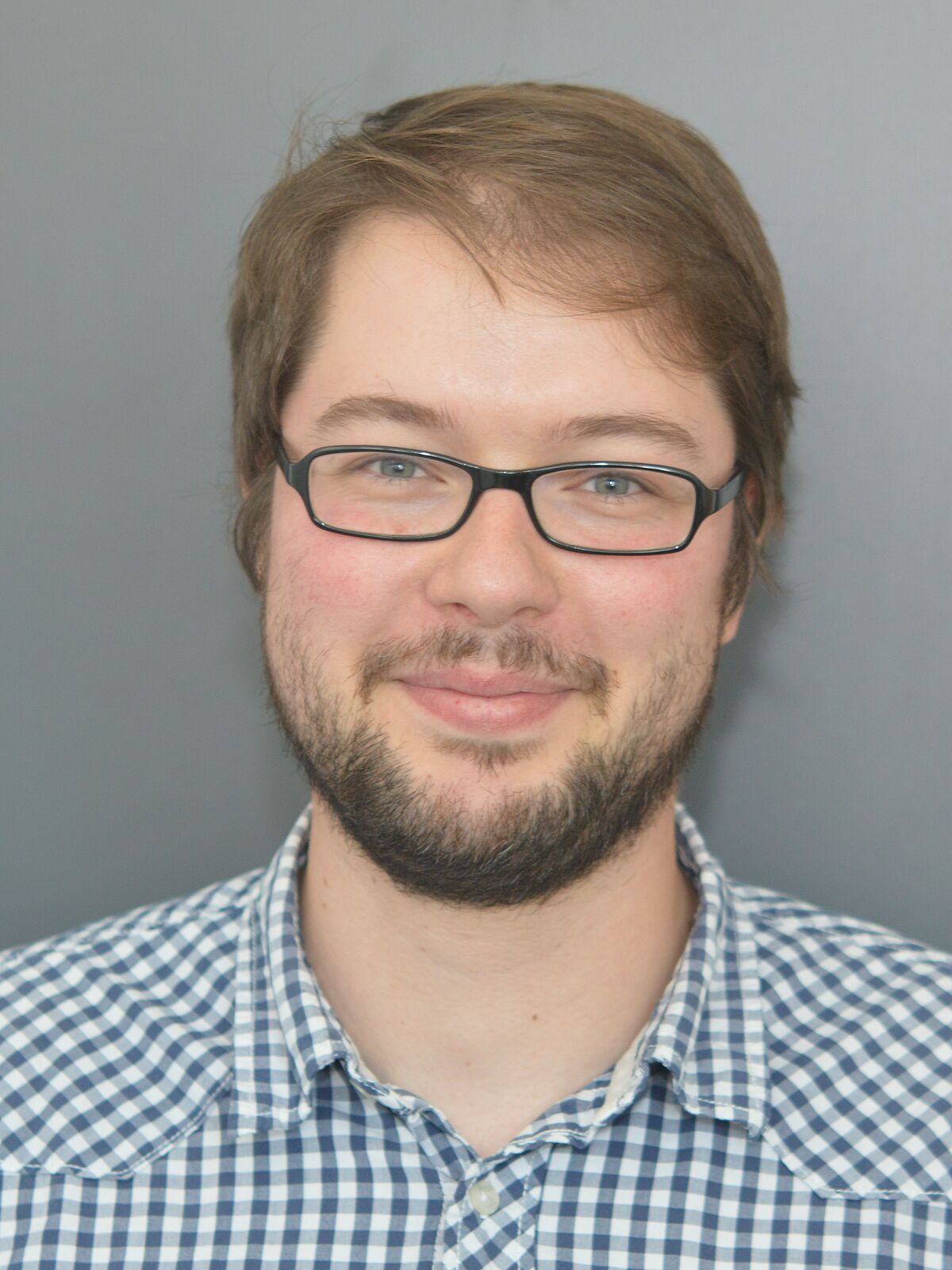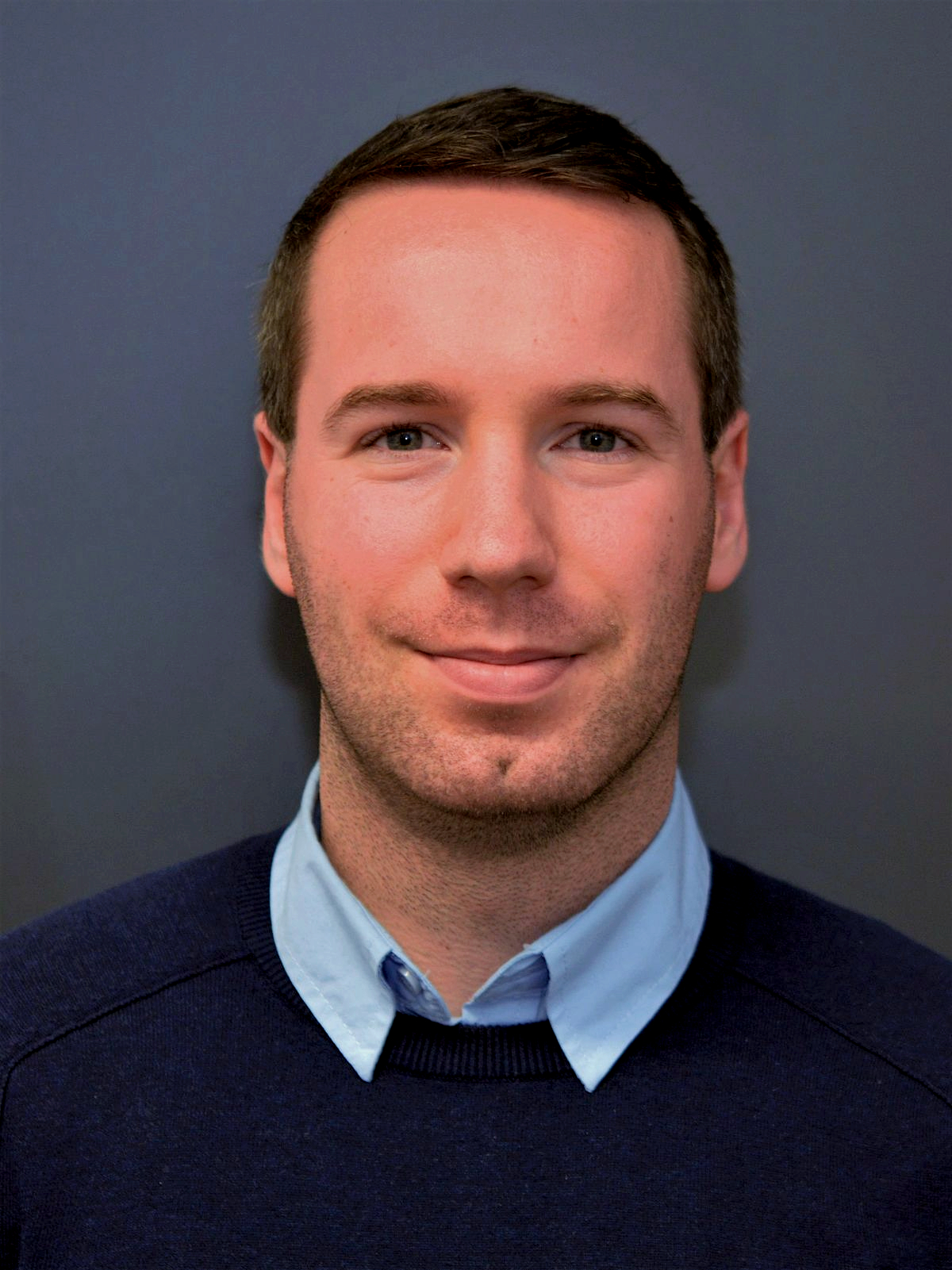AerOrbi - Aerosol soft photo ionisation Orbitrap mass spectrometry
Motivation
Aerosol characterization is essential for environmental health and climate research and, thus, represents an attractive market for analytical instrumentation and sector for innovations in enabling technologies. In this respect, there is a need for high-performance online instrumentation unraveling the aerosol chemical composition on the molecular level. The idea of the Eurostars AerOrbi project is to address a niche in the existing field-deployable instrumentation sector by the development of a new hyphenated instrument. The new device will combine soft photoionization, preserving the molecular finger-print, and Orbitrap-based high-resolution mass spectrometry, allowing to attribute distinct elemental composition to the constituents.
Aim of the project
The aim of the AerOrbi project is the development of a functional prototype of an innovative transportable instrument for aerosol chemical specification, which is capable of gas-phase measurements and single-particle analysis.
A direct gas-phase inlet, developed by the University of Rostock and Photonion GmbH, will allow determining the chemical composition of the gaseous phase of an aerosol. A second alternative will be composed of an additional aerosol thermal desorption system, invented by Aerosol d.o.o., mimicking the well-established EC/OC technology. Currently, there is no instrument commercially available on the market addressing the molecular complexity of carbonaceous aerosols, which can be used in field experiments. The third approach will be a single particle module. This version will introduce the particle phase (PM2.5) directly into the system, and a cascade of lenses and sizing units enable the mass spectrometric measurement of single nanometer-size particles. The final product is able to detect toxic substances, emission sources, and relevant environmental parameters. Chemical characterization on the single-particle level allows for source apportionment, e.g., primary emission sources and transport paths of air pollution.
In the AerOrbi prototype, resonance-enhanced multiphoton ionization (REMPI), a soft photoionization scheme, will be deployed. This technique is realized via a 266 nm Nd:YAG solid-state and a 248 nm Excimer pulsed ns-laser. The key benefit of REMPI is the high sensitivity towards aromatic constituents, including the toxic and carcinogenic polycyclic aromatic hydrocarbons. The laser technique enables a fast repetition and, thus, a rapid acquisition rate. The last structural component of the instrument is the mass analyzer. An Orbitrap high-resolution mass analyzer will be installed with certain beneficial features, such as a high resolving power and ppm mass accuracy. Carbonaceous aerosol consists of a high number of different chemical species; therefore, a mass analyzer with high resolving power improves signal detection and assignment. Overlaps and peak distortion, which could lead to a wrong interpretation, are minimized. The highly complex data of the Orbitrap analyzer have to be detected and processed efficiently online. For this purpose, a high-sophisticated DAQ-system will be developed and installed by Spectroswiss SARL and Photonion GmbH. This system transcripts the raw data in a series of processing steps, including fast Fourier transformation, signal detection, and correction. The benefit of this high-level DAQ-system is a quasi-instant and in-line response of the measured data, which enables a fast interpretation of the sample with the highest achievable sensitivity and dynamic range. High-performance mass spectrometry of the prototype results in unambiguous chemical information.
The EUROSTARS AerOrbi project brings together the unique expertise of four partners: one academic institution and three SMEs. Thermo Fisher Scientific, the sole vendor of Orbitrap-based mass spectrometric solutions, acts as an external partner, contributing in-depth know-how on the hardware and software architecture of the mass analyzer platform.
Expected results and impact
There is a growing interest in the investigation of aerosols regarding environmental health and climate aspects. The aim of the AerOrbi project is the development of a functional prototype of an innovative transportable instrument for aerosol specification, which is capable of gas-phase measurements (e.g. from aerosol thermal desorption) and single-particle analysis. High-performance mass spectrometry results in unambiguous chemical information. Currently, there is no instrument commercially available on the market addressing the molecular level of carbonaceous aerosols, which can be used in field experiments. As non-destructive (soft) ionisation technique, laser-based photoionisation will be used to analyse the molecular composition of the aerosols. A high-resolution Orbitrap mass analyser will be used which requires enhanced data processing but delivers high mass resolving power and mass accuracy. The high resolving power enables differentiation of complex mixtures, and the high mass accuracy allows unambiguous peak assignment. To sum up, the main result of the project will be a new type of aerosol analyser incorporating different technologies and enabling unique features, to date not available on the market.
Consortium
- Spectroswiss SARL (https://www.spectroswiss.ch/)
- Aerosol d.o.o. (http://www.aerosol.si/)
- Photonion GmbH (https://www.photonion.de/)
- University of Rostock, Institute of Chemistry, Chair of Analytical Chemistry
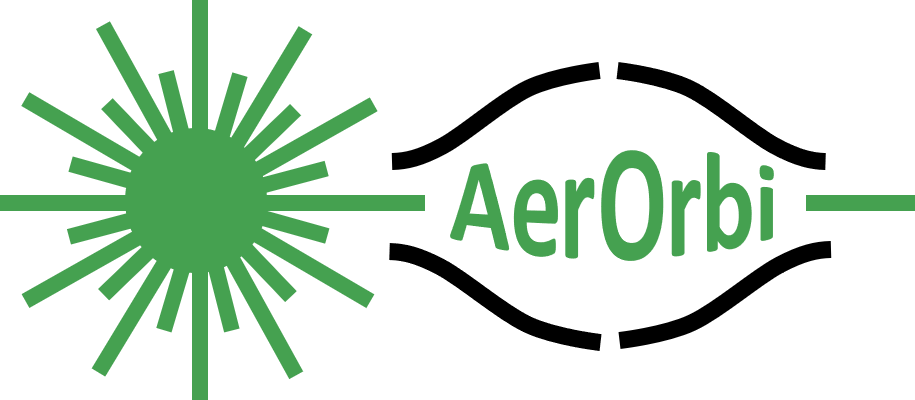
Co-funded by EUREKA member
countries and the European Union
Horizon 2020 Framework Programme.
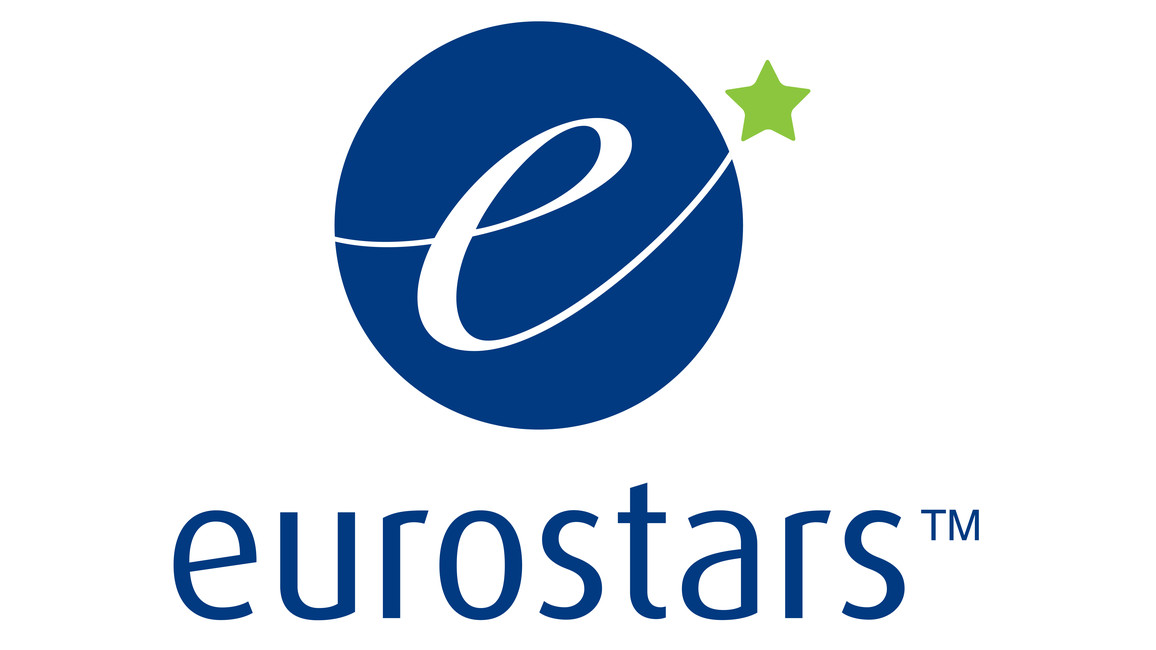
Project realization at University Rostock
Paul Kösling
University of Rostock
Institute of Chemistry
Division of Analytical and Technical Chemistry
Department Life Light & Matter
Paul Kösling
Albert-Einstein-Straße 25
18059 Rostock (Germany)
Tel.: +49 (0) 381 498 - 8990
paul.koeslinguni-rostockde
Dr. Julian Schade
University of Rostock
Institute of Chemistry
Division of Analytical and Technical Chemistry
Department Life Light & Matter
Julian Schade
Albert-Einstein-Straße 25
18059 Rostock (Germany)
Tel.: +49 (0) 381 498 - 8978
julian.schadeuni-rostockde
University of Rostock
Institute of Chemistry
Division of Analytical and Technical Chemistry
Department Life Light & Matter
Dr. Christopher Rüger
Albert-Einstein-Straße 25
18059 Rostock (Germany)
Tel.: +49 (0) 381 498 - 8990
E-Mail:

